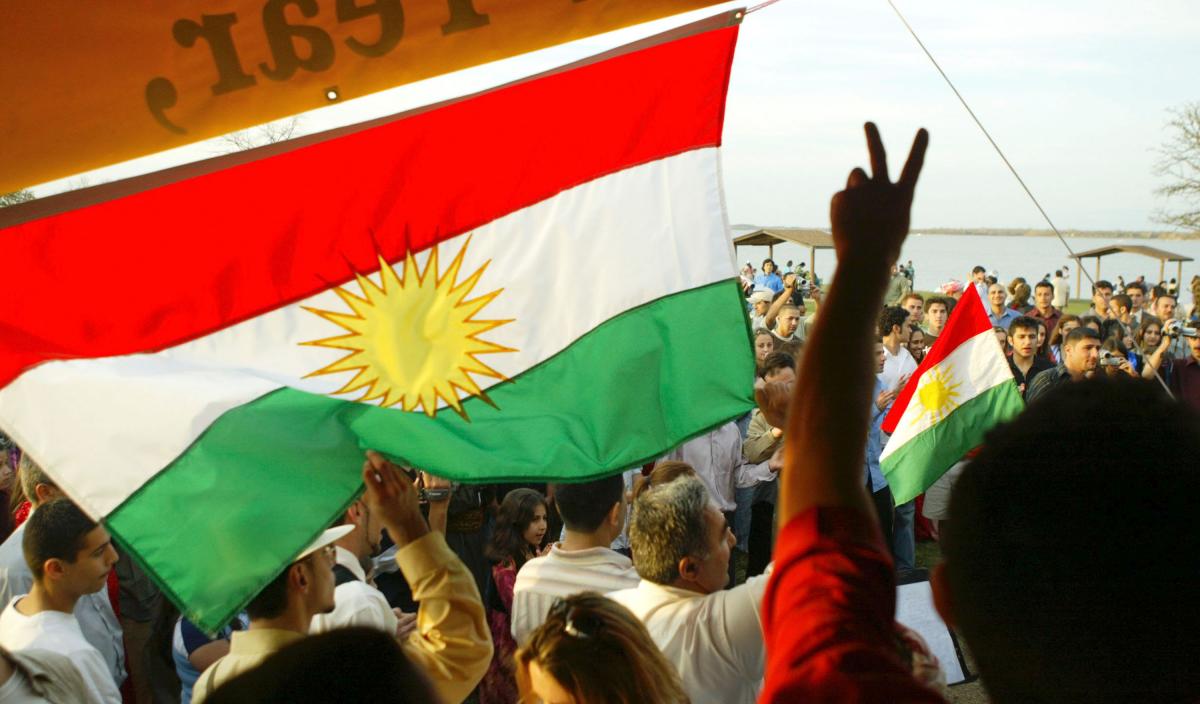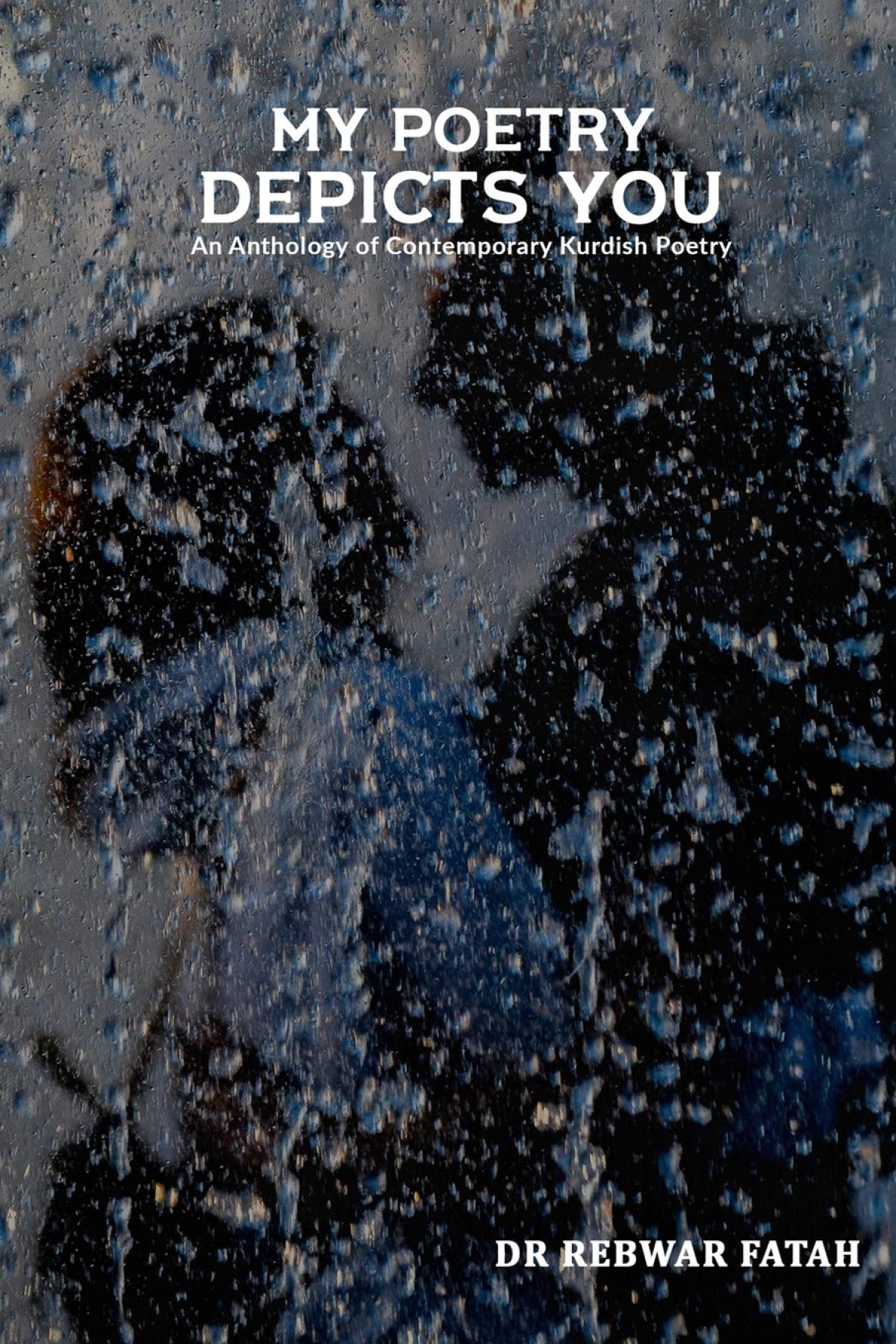
The displacement of the Kurdish nation has historically made it difficult for Kurds to collect their works and create robust anthologies. Some famous folktales were never published until the late 19th century and early 20thcentury. An example of this would be the famous love story Mem u Zin, which had its first modern publication in 1898 in the Cairo based Kurdish newspaper “Kurdistan”. Nevertheless, the revival of Kurdish national sentiment to the desire to collect works done by Kurdish writers, novelists and poets and preserve them for generations to come. The Kurdish writer and poet Dr Rebwar Fatah has recently published an anthology of modern Kurdish poetry called “My Poetry Depicts You” which feature the works of poets stemming mostly from the 20th century. The poems in the anthology have been translated into English and are written in a style that is accessible to most western readers, while still preserving the works’ fundamental Kurdish identity. Most if not all the poets in the anthology have lived through exile, and some have lived through the worst atrocities the Kurdish nation has faced. The poems featured demonstrate the collective desire for statehood, and the need for Kurdish unity. Some poems even tell stories of love, lust and romance, as we get a view of the divergence between the male and the female perspective on romance and desire. Below is a list of some of the poets featured as well as the works that resonated with me the most.
ABDULLAH GORAN: THE PERPETUAL POET AND THE MOST INFLUENTIAL
Born in Halabja, Sulaymaniyah, Abdullah Goran is arguably the most well known and most influential contemporary Kurdish poets of the 20th century. Among his innovations was his decision to eliminate the usage of Arabic Aruz rhythm, which most of his peers relied on. That isn’t to say that Goran wasn’t a multi- linguist, as a matter of fact he was well versed in Arabic, Farsi and Turkish and was known to be a talented translator who translated multiple poems. Another factor that led to Goran’s popularity was the fact that he never stopped writing poetry, while many of his peers would temporarily or permanently hang their poetry pens to dry, Goran would never entertain such an idea. As a result, he would keep his avid audience members and attract new audience members as well. Goran wrote a number of romance poems, among them was “Desire” in which he expressed the joys that finding love could bring in one’s life. In his poem, he describes that melancholy that one feels during solitude and loneliness:
There was a time, when the gardens of my life, were without music;
The nests of my nightingales were without songs;
.
My dreams were not dreams, my thoughts made no sense;
My feelings were like a disturbed ocean under heavy waves;
.
My soul was without strength so sad and depressed was I;
My hopes were dark, the death of my love was hidden within the coffin of life.
.
I was hopeless; I thought that a fatal disease
Was bringing me the gift of death once and for all.
Goran then exquisitely contrasts these depressive episodes with the jubilation of finally finding a soul mate:
.
I thought I had to wait until careless nature
Encourages the bestiality of graves to devour me.
.
But my love, sweet love, my stunning lady;
With your rose red lips and dark black eyes;
.
With your tall figure, so supple and attractive;
With your sweet walks, graceful movements, and melodious voice;
.
With all this exquisiteness in the beauty of heavens;
With all the magnificence that is in you;
.
From the first day that I saw the magic of your smile,
The nightingales of my soul began to sing;
YUNIS REUF DILDAR: THE YOUNG POET WHO WROTE THE KURDISH NATIONAL ANTHM
A lawyer by profession Dildar was well versed in Kurdish poetry, as he knew multiple Kurdish poems by heart. Dildar was a political activist from Koya, Iraqi Kurdistan, a small town known for its intellectuals. While in prison he wrote the poem Ey Raqib (Hey, Enemy), which would become the lyrics to Kurdistan’s ‘national’ anthem. Dildar would die at the young age of 30, but his contribution to Kurdish national identity will always be remembered.
Hey enemy guard! The Kurdish-speaking nation is alive,
Undefeatable by weapons of all times.
Let no one say the Kurds are no more!
They are here and their flag never falls.
Our people have risen; they know no fear,
Ready to adorn the crown of life with blood.
We are the children of the Medes and the Keykhosrow
Our faith and religion and the love for Kurdistan.
The Kurdish youth has risen like lions,
To adorn the crown of life with blood.
Forever we will be ready to die;
For freedom and for loving our land.

ABDULLAH PASHEW AND THE ART OF CUTTING TO THE CHASE
Abdullah Pashew was born and raised Erbil, Iraqi Kurdisatan. However, at a young age he moved to the former Soviet Union in pursuit of further studies, thus starting his life long journey through exile as he would live in various places through his life time such as Libya, and Finland where he still resides to this day. Pashew’s poetry is influenced by the work of Western poets and Piramerd, a Kurdish who lived during the mid-19th century to mid-20th century. Pashew’s poems are short and to the point, and are often critical of corrupt internal and external forces that have come in the way of establishing a Kurdish nation state.
In “Halabja”, Pashew gives his opinion on the two powers that competed in the Cold War, as he described both American and Soviet politicians as beasts that lacked human compassion:
I should not be surprised, here and there,
In the Kremlin or the White House,
To see some human beings,
Who instead of nails have claws;
Instead of teeth have fangs,
But it would be shocking,
Just like God’s miracles
Have two eyes and walk upright on two legs.
In “To a Gypsy” he expresses the anxieties of the Kurdish diaspora, which yearns for a state. He fears that Kurds will one day become like the Romani (gypsies), a nomadic nation that lacks a state of their own and are often shunned and discriminated against by society. In the poem, the narrator beseeches the Gypsy palm reader to not predict his marital life, or his wealth, rather he wishes to know if he will ever see a Kurdish state in his life time
Don’t look at my palm anymore!
I don’t want you to tell me,
How many children I will father;
Whether I will be rich or stay poor.
Just tell me one thing,
Will I live as you live, as long as I am alive?
Or I shall have a homeland?
SHERKO BEKAS CALLS FOR KURDISH UNITY
Sherko Bekas started his career as a teacher, but through his life he would remain an active member of Kurdish politics. In the 1970s, he was one of the founders of the Rwanga socio-political literary movement. He would then join the Kurdish armed movement in the 1980s, and would join the Kurdistan Regional Government in Northern, Iraq when it was founded briefly becoming the KRG’s minister for culture. Bekas’s poetry would often highlight the atrocities Kurds faced in the region, such as the Halabja massacre. In “To the Western Kurds” he criticised Kurdish leadership in Iraq for closing its borders with Syria, not allowing Syrian Kurds (Western Kurds) to seek refuge in Iraqi Kurdistan. The poem also expressed the need for Kurdish unity that transcends borders:
To the Kurds of my heart,
To the Kurds of my soul,
To the Western Kurds,
To the peace of my conscience,
To the peace of my own existence,
Now, children are rolling in their blood, there,
And yet, my leader halts the supply of milk.
Now, the old and ill amongst my people are unable to flee;
As my leader barricades their escape routes.
GORAN MERIWANI PAYS TRIBUTE TO THE DEPARTED
Goran Meriwani (Dr Rebwar Fatah’s older brother) fled Iraqi Kurdistan in fear of persecution from the former Baathist regime in Iraq. Due to these political repressions, Meriwani was hesitant to publish his works, despite his literary talent. However, he recently came around spreading his work through social media platforms. Meriwani’s most well known poems are those that paid tribute to the victims who were executed by the Baath regime. Among said victims was his brother Dilshad Meriwani who was arrested by the Baath regime, and has since then never been heard from again. Goran pays tribute to his brother in “You Are Not Coming Home!”
When the rain drizzle down;
When the green leaves are about to turn yellow;
When pain of grief for you is unbearable;
At night clouds are intimate
To give birth to snowflakes and drops of rain.
I open the door
To find only blizzard
You are not coming home again!
DILSOZ HAMA AND THE PAIN OF FINDING A SOULMATE
Dilsoz Hama is only one of two female writers to be featured in the anthology. Her life began with great affliction as she was born in a refugee camp in the Kurdistan region of Iran. She then moved to Sulaymaniyah and attended the University of Mosul. She has been a political activist since her youth, and Baathist forces wounded her during the civil unrest of 1982. Like many Kurdish poets, she now resides in exile, as the Netherlands has become her home since the late 1990s. In “Snapshots of Womanhood” Hama demonstrates how finding a soul mate doesn’t always lead to great happiness and joy, for instance if the love is unrequited then the situation will lead to times of sorrow and depression. She masterfully describes the devastating emotions that comes with loneliness:
Loneliness introduced me to the hands that killed me.
Loneliness introduced me to the love that destroyed me.
Loneliness introduced me to the path that lost me.
She also describes relationships in which one partner is more loving than their counterpart:
My lover, oh my lover!
Once a month he sends me a letter.
Yet it fills up all the 30 days with sunlight
And all 30 nights with stars.
Once a season he phones.
Yet it fills up all my three months with songs,
Roars of rivers and whisperings of winds.
Dr Rebwar Fatah describes the tragedy that men have overwhelmingly dominated the realm of Kurdish poetry, but hopefully more female Kurdish poets can follow the footsteps of Hama and Venus Faiq (the other female poet featured in the anthology). Given the fact that the Kurdish community is a largely progressive one, I have no doubt in my mind that female poets are wholeheartedly welcome by literary intellectuals and the general Kurdish public.






